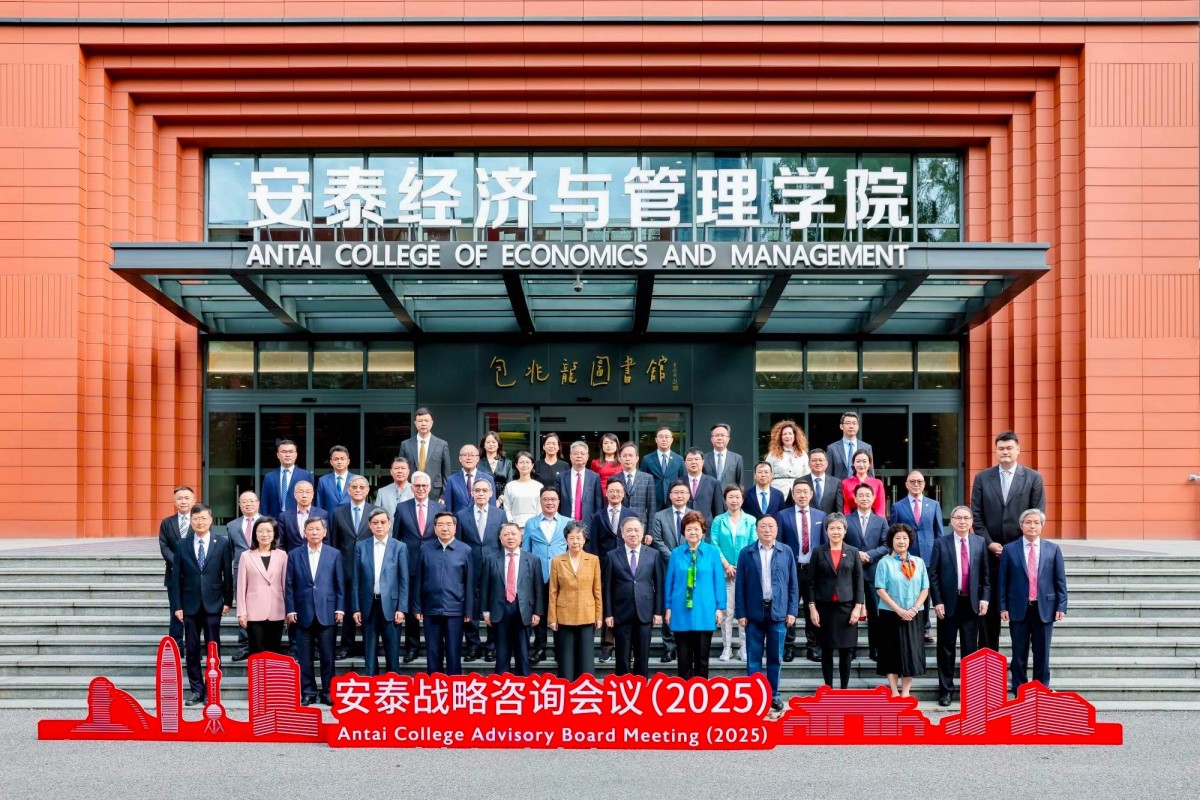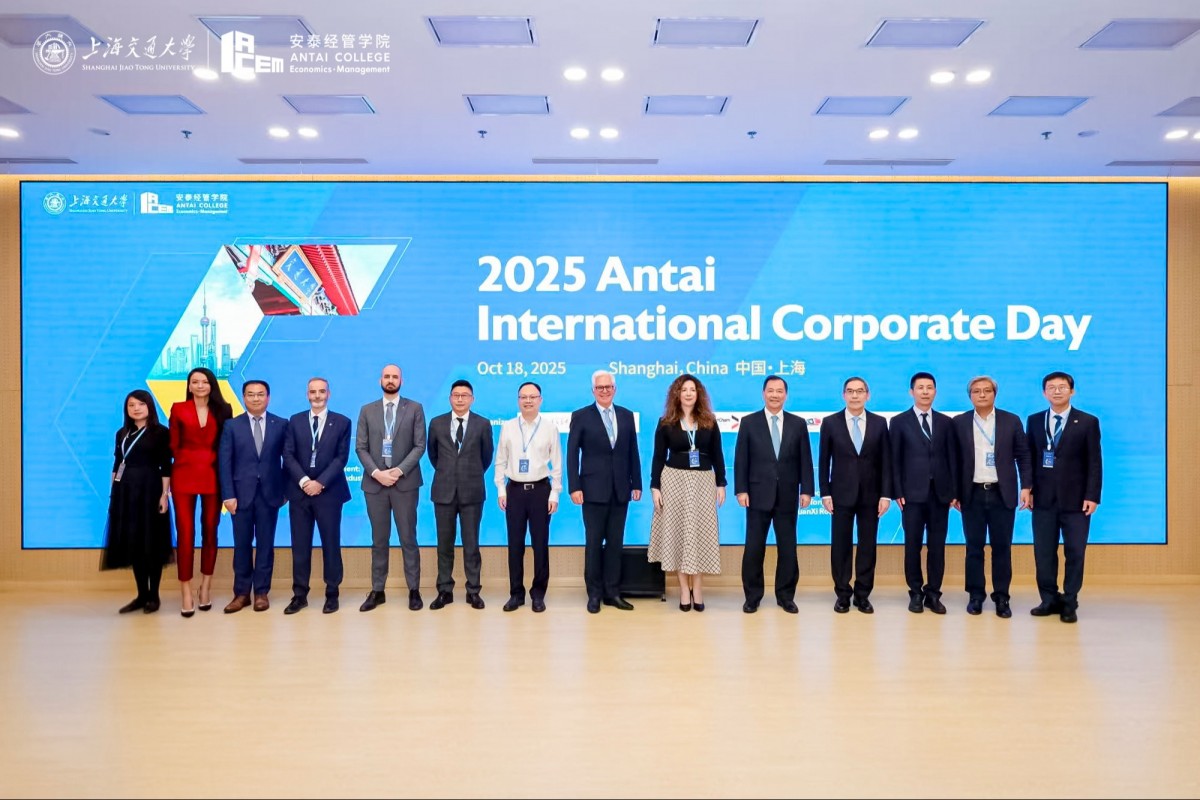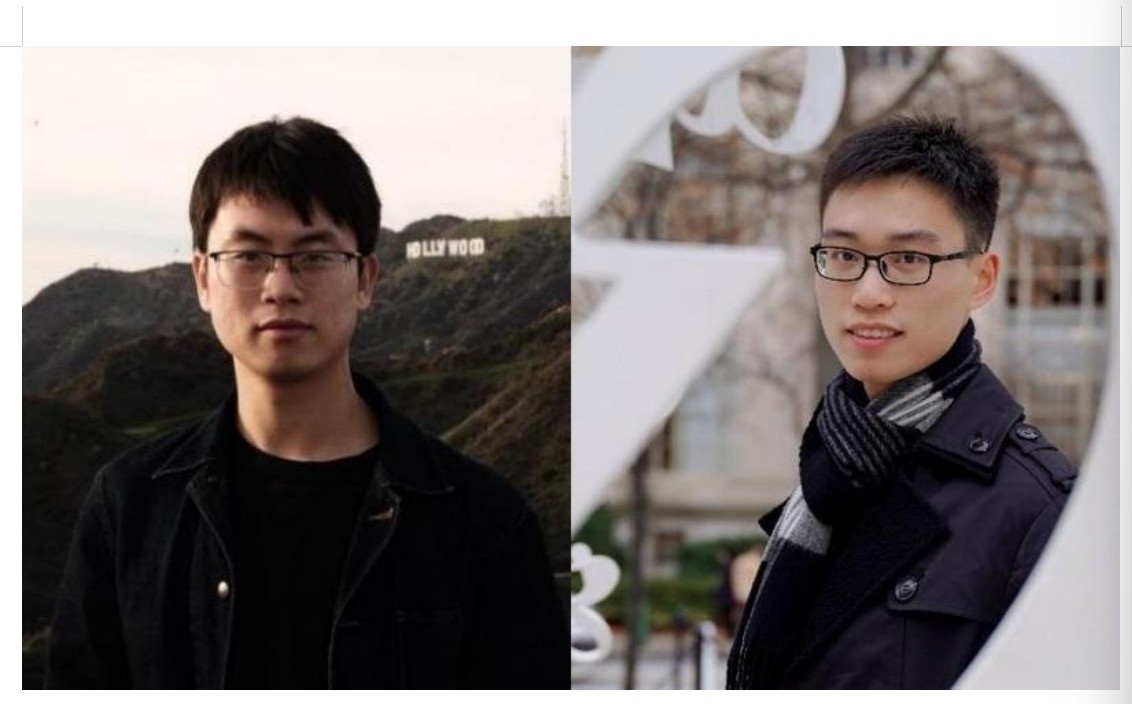The 2025 Antai International Corporate Day was held on October 18, 2025, with a job fair and a forum under the theme “Reciprocated Empowerment: Bridging Academia and Industry for Global Success.” The forum brought together more than 200 distinguished guests, including executives and representatives from the Chambers of Commerce of Australia, the United States, France, Thailand, Malaysia, Serbia, and Singapore, as well as industry leaders, academic scholars, and students. The job fair featured more than 30 multinational companies offering over 1,000 job opportunities to students and graduates from both within and outside Shanghai Jiao Tong University (SJTU).
The forum began with opening remarks from Professor Weidong Liu, Vice President of Shanghai Jiao Tong University. He emphasized that SJTU, with its open, innovative, and inclusive vision, continues to deepen its “Global SJTU” strategy by fostering partnerships with international universities and institutions. As the first business school in mainland China accredited by AMBA, EQUIS, and AACSB, Antai College has built a world-class international education framework that bridges academic rigor with practical business insight. Liu highlighted that the Antai International Corporate Day stands as a testament to SJTU’s enduring commitment to global engagement and excellence in international collaboration in higher education.
Professor Fangruo Chen, Dean of Antai College of Economics and Management, warmly welcomed all guests and partners. He stated that this year’s theme reflects Antai’s mission to strengthen the synergy between academia and industry and to promote innovation and sustainable development through close cooperation. Dean Chen noted that Antai has entered a new phase of development, advancing its “horizontal (academic) and vertical (industry)” dual approach that connects theory with practice. He encouraged participants to actively exchange ideas, explore collaboration, and jointly build a future where education and innovation reinforce each other for shared global success.
Mr. Eric Zheng, President of the American Chamber of Commerce in Shanghai, delivered the keynote speech titled “Multinational Companies in China: Opportunities and Challenges.” He analyzed recent developments in U.S.–China economic relations, including the effects of ongoing tariff disputes, shifts in global trade and investment, and the evolving role of multinational companies in China. Citing findings from the 2025 China Business Review released by AmCham Shanghai, Zheng noted that 77% of member companies remained profitable in 2024, reflecting resilience amid external headwinds. While regulatory conditions and policy transparency have improved, he pointed out that geopolitical tensions, intensified competition, and slowing growth continue to pose major challenges. Business confidence has weakened, with only 41% of surveyed companies optimistic about their five-year outlook—a historic low. Nearly half of multinationals are adjusting their supply chains to enhance resilience and reduce risk. Zheng concluded that foreign enterprises in China are shifting from “defensive adjustment” to “strategic restructuring,” underscoring China’s continued importance in global value chains as a center for innovation, production, and consumption.
Following the keynote speech, two engaging roundtable discussions explored the topics of talent development and innovation. The first roundtable, themed “Preparing Future Talent: Best Practices in University–Industry Partnership,” was moderated by Mr. Simon Woods, CEO and Executive Director of the Australian Chamber of Commerce Shanghai. Panelists included Professor Léon Laulusa, Executive President and Dean of ESCP Business School (France); Professor Juan Samuel Baixauli Soler, Dean of the Faculty of Business and Economics at the University of Murcia (Spain); Ms. Laurie Li, Board member of LIAN Cultural; and Mr. Zun Xia, COO of the Global Public Sector BU at Huawei Technologies Co., Ltd. They exchanged views on how universities and companies can jointly cultivate globally minded managerial talent, sharing best practices in action learning, international cooperation, and the integration of academic theory with real-world application.
The second roundtable, themed “From Knowledge Transformation and Technological Innovation,” was moderated by Professor Bodo B. Schlegelmilch, Professor Emeritus of Global Marketing Strategy at WU Vienna, Dean Emeritus of the WU Executive Academy, and Senior Advisor to AMBA & BGA. Participants included Mr. Liming Li, General Manager China of Fortescue Group; Dr. Julie Laulusa, Managing Partner Mainland China and Head of Global China Services (GCS), Forvis Mazars; Ms. Jelena Gruber Stefanovic, Head of the Chamber of Commerce and Industry of Serbia; and Professor Haitao Yin, Director of the Division of Global Cooperation and Exchange at SJTU. The discussion focused on how cutting-edge research can be effectively transformed into technological innovation, emphasizing interdisciplinary collaboration, knowledge transfer, and successful examples of university–industry partnerships that promote innovation and entrepreneurship.
The international job fair drew strong participation from over 30 leading multinational corporations including renowned names like Deloitte, EY, Standard Chartered Bank, Sanofi, Mondelēz, GenScript, PDD, and Red Note. These companies represented a broad spectrum of industries, including banking, finance, technology, pharmaceuticals, consumer goods, and the Internet sector. They provided more than one thousand job opportunities to students and graduates, from both within and outside the university.
The "Antai International Corporate Day" is a highly anticipated event organised by Antai College of Economics and Management, Shanghai Jiao Tong University. This event serves as a platform to bridge the gap between foreign enterprises operating in China and the academic and student resources available within and beyond Antai. By combining a forum and a job fair, this event aims to facilitate in-depth dialogue and foster mutually beneficial relationships between businesses and academia.



